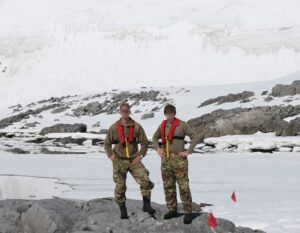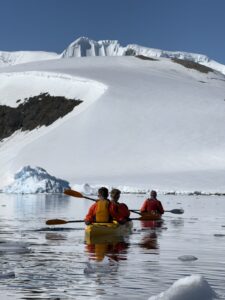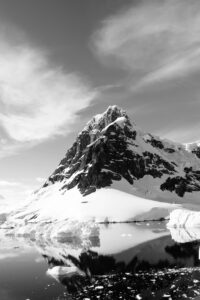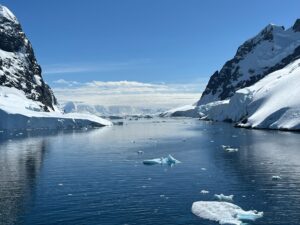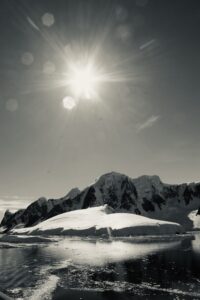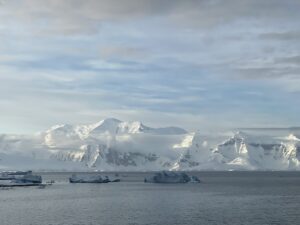Looking back on my Antarctic journey, I’ve not just been to one of the most remote regions on our planet but plunged deeply into leadership and sustainability. This trip was not just a trek over ice and snow but a deeper exploration of what it means to be responsible in a rapidly changing world.
Shifting Perspectives on Leadership
Until this trip, I understood leadership in conventional terms: hierarchy, discipline, and outcomes. These qualities are still vital, but Antarctica broadened my perspective. I now realize that leadership is as much about harmony as it is about success. In an environment where balance is everything, and the slightest disruption can have significant ramifications, I discovered that leadership’s task is not to make progress but to make it viable.
It’s a perspective that challenges what I had previously thought. I used to think leadership was about setting boundaries and establishing rules. But in Antarctica, I learned that flexibility and an openness to change are just as important. An inflexible mind is a liability in an environment of uncertainty. Leaders have to remain adaptive and flexible and able to shift gears when the need arises.
Lessons in Global Responsibility
The global scale of Antarctica’s conservation work deeply impacted my perception of sustainability and leadership. The continent’s international governance represents a model for what humanity can do when we set aside individual agendas for a common purpose.
As a young military leader, this was incredibly important. It taught me to lead my team and think about the broader impact of what I am doing, why I am doing it, and how I am leading. Behaving ethically means addressing the world, seeing the impact of local behavior, and putting long-term stability ahead of short-term gains.
Revisiting My Initial Impressions
When I first set foot in Antarctica, I hoped to draw inspiration from its brutal beauty and toughness. I didn’t anticipate how profoundly it would change my thoughts about leadership. I initially thought leadership down in Antarctica would be about conquering challenges. Instead, it taught me that leadership requires cooperation, humility, and responsibility.
This realization was humbling. Nature isn’t humanly manipulated, and it does best when we respect its boundaries and mechanisms. The same applies to managing people and organizations. Leadership doesn’t mean conquering; leadership means creating conditions in which people and systems can flourish.
Applying These Lessons
I intend to implement these lessons in my work and my personal leadership philosophy. Moving forward, I will:
- Value Sustainability: I will consider each choice’s longer-term impact so that the actions I take today won’t risk future security.
- Flexibility: I will develop flexibility because the best leaders don’t know all the answers but understand uncertainty.
- Promote Collaborative Action: I’ll attempt to establish connections and trust and pursue a common purpose with a team, organization, or global collaborators.
Closing Thoughts
My Antarctic experience was transformative. It changed my perception of leadership and uncovered the complex links between sustainability and success. Today, as a young military leader, I carry those lessons with me, committed to leading with intention, vision, humility, and reverence for the natural and human systems that hold us all together.
